slavery
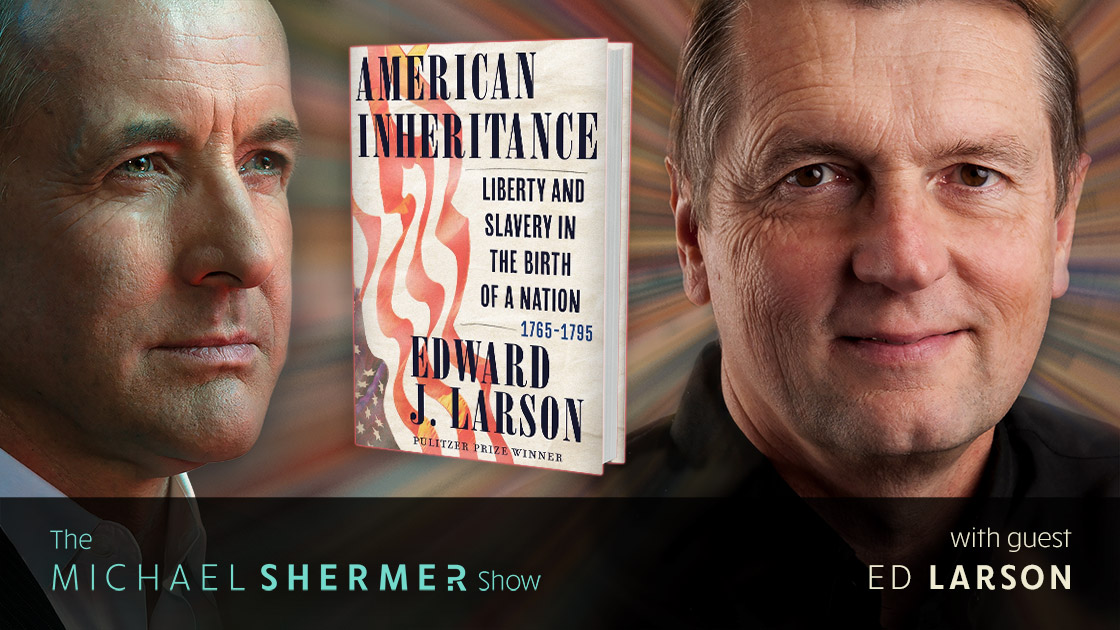
Shermer and Larson discuss: Was America founded in 1619 or 1776? • What is/was an “American”? • Founding Fathers attitudes toward slavery • What was the justification of slavery? • constitutional convention and slavery compromises • U.S. Constitution and slavery • Thirteenth, Fourteenth, and Fifteenth Amendments • Atlantic slave trade • Fugitive Slave Act and Clause • Native Americans • monogenism vs. polygenism • slavery abolition • Quakers push for abolition • Three-fifths Compromise • The Dread Scott Decision and…

Shermer and Eig discuss: how to write biography • the history of the King family going back to slavery, Jim Crow, etc. • the influence of King Sr. on Martin’s intellectual and emotional development and the Ebenezer Baptist Church • King’s early experience with racism in the south • King’s religious beliefs and the influence of his faith on his civil rights activism • the influence of Gandhi and Reinhold Niebuhr on King’s strategic activism and deep belief in nonviolence…
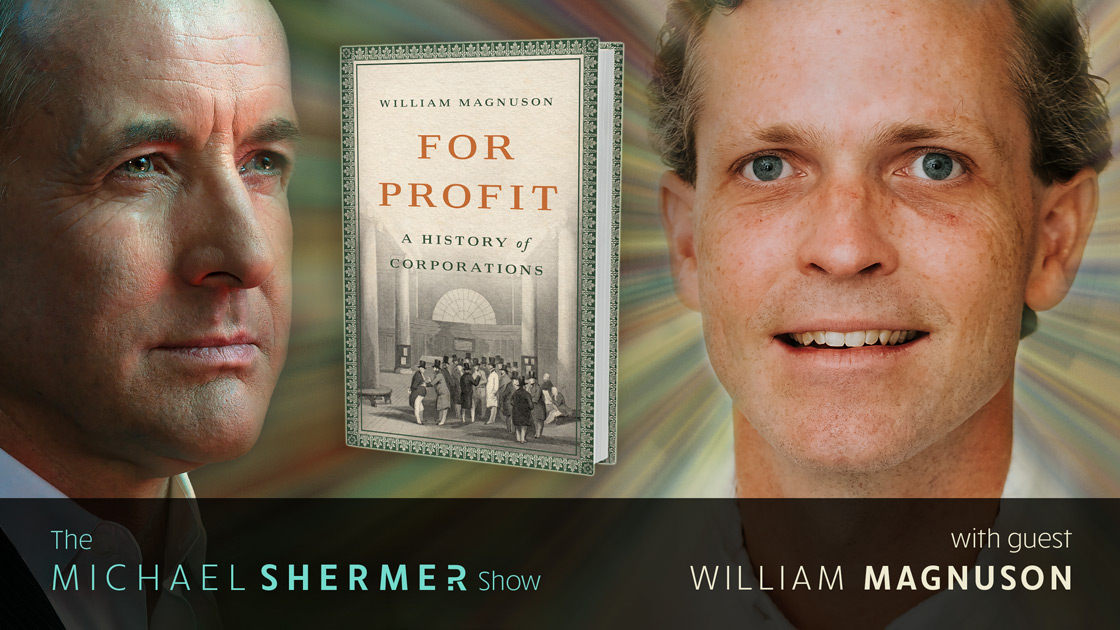
Shermer and Magnuson discuss: corporations and what they are for • LLCs • Roman corporations • medieval economics • banks • guilds • Credit Mobilier scandal • Dutch and British East India Companies • stocks, bonds, joint stock companies • monopolies, duopolies • assembly lines • multinationals • raiders • private equity firms • start-ups • antitrust, trustbusting • bankruptcy • bitcoin, cryptocurrency • Adam Smith’s critique of corporations • profit and market efficiency • slavery and economics • unions.

As Skeptic Publisher Michael Shermer wrote in his Introduction to Skeptic magazine’s special issue on Race Matters (27.3), the issues outlined in this article documenting the continuation of systemically racist social structures—even as racist attitudes have improved dramatically over the past half century—mean that race still matters very much in the USA. It is thus incumbent on all of us to properly understand the causes of these issues so that we may implement a rational and science-based response to them.

Michael Shermer introduces the theme of Skeptic magazine volume 27, number 3: Race Matters.
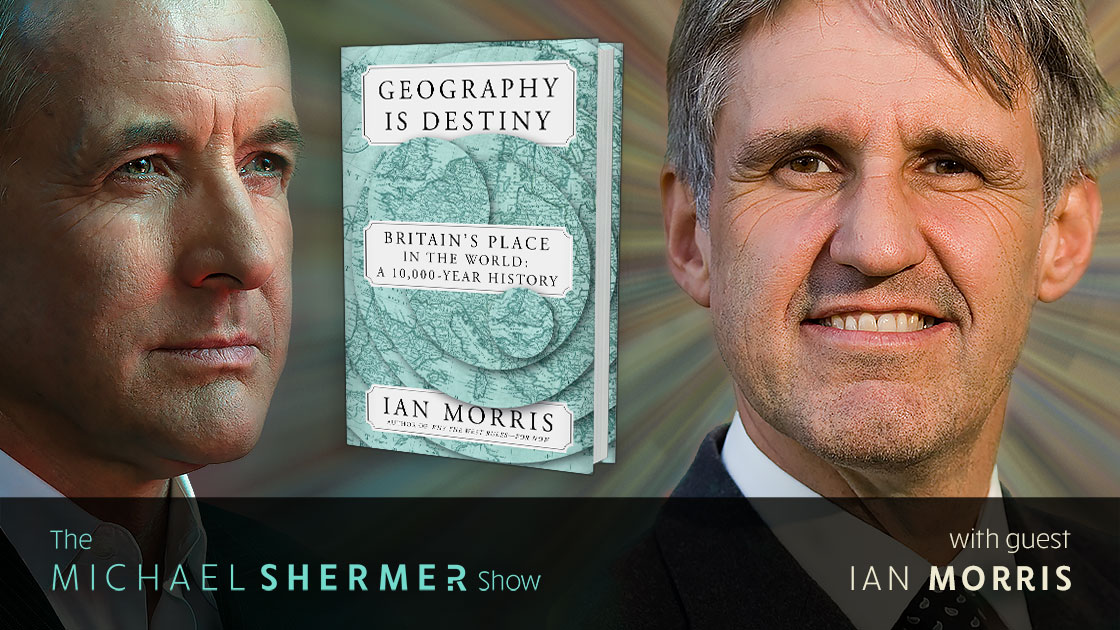
In this conversation on deep time and big history, Shermer and Morris discuss the history of Big History, the future of energy and civilization, China and the future of energy and political power, what Britain was like 8000 years ago, the major transitions in British history, counterfactual history, slavery and the abolition of the slave trade, the role of ideas in history (civil rights, rule of law, justice, etc.), reparations and making right the wrongs of the past.

Michael Shermer and Mary Grabar discuss: communism • capitalism • cancel culture • the 1619 Project • empirical truths vs. mythic truths • historical revisionism vs. denial • pseudohistory • slavery 1619–1776 • reparations, Howard Zinn and the distortion of history • moral equivalency arguments • quotations taken out of context • the Holocaust s • intentionalism vs. functionalism • manipulation and deception, and more…
In episode 217, Michael Shermer speaks with Mary Grabar about her books Debunking the 1619 Project: Exposing the Plan to Divide America and Debunking Howard Zinn: Exposing the Fake History That Turned a Generation Against America.

2020 has been one of the most momentous years of the past half century. In this conversation based on the book Threats: Intimidation and its Discontents, Shermer and Barash discuss: the evolutionary logic of nuclear deterrence, threat strategy and motive behind nuking, close calls with nuclear weapons, why they are not a sustainable strategy, the arms race within the U.S. between the Army, Navy, and Airforce, and more…
2020 has been one of the most momentous years of the past half century. In this conversation based on the book Threats: Intimidation and its Discontents, Shermer and Barash discuss: the evolutionary logic of nuclear deterrence, threat strategy and motive behind nuking, close calls with nuclear weapons, why they are not a sustainable strategy, the arms race within the U.S. between the Army, Navy, and Airforce, and more…
In Science Salon podcast # 141, Michael Shermer speaks with Richard Kreitner about this new book: Break it Up: Secession, Division, and the Secret History of America’s Imperfect Union.
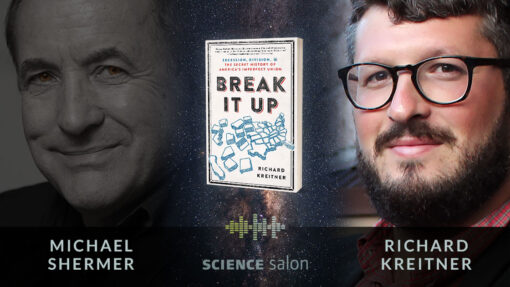
Investigative journalist Richard Kreitner takes us on a revolutionary journey through American history, revealing the power and persistence of disunion movements in every era and region. The provocative thesis of Break It Up is simple: The United States has never lived up to its name—and never will. The disunionist impulse may have found its greatest expression in the Civil War, but the seduction of secession wasn’t limited to the South or the 19th century. It was there at our founding…
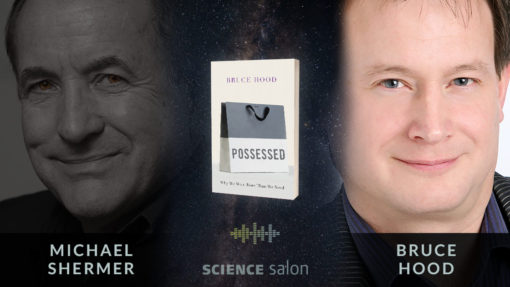
Psychologist Bruce Hood explains why our uniquely human preoccupation with ownership governs our behavior, even when it is often irrational, and destructive. Possessed is the first book to explore how ownership has us enthralled in relentless pursuit of a false happiness, with damaging consequences for society and the planet — and how we can stop buying into it.
In Science Salon # 81, Michael Shermer speaks with award-winning University of Bristol psychologist Bruce Hood about his brand new book, Possessed: Why We Want More Than We Need, which draws on research to explain why our uniquely human preoccupation with ownership governs our behavior from the cradle to the grave, even when it is often irrational, and destructive.
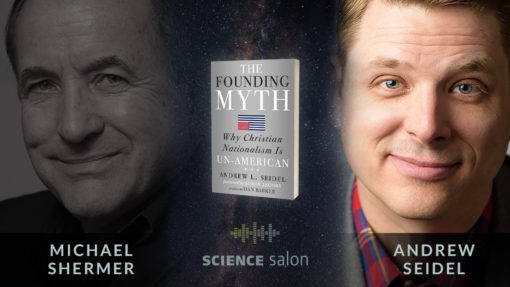
Was America founded on Judeo-Christian principles? Are the Ten Commandments the basis for American law? What, exactly, was the role of religion in America’s founding? Shermer speaks with constitutional attorney and scholar at the Freedom from Religion Foundation (FFRF) Andrew L. Seidel who argues that America was not built on the Bible and that Christian nationalism is, in fact, un-American.



















